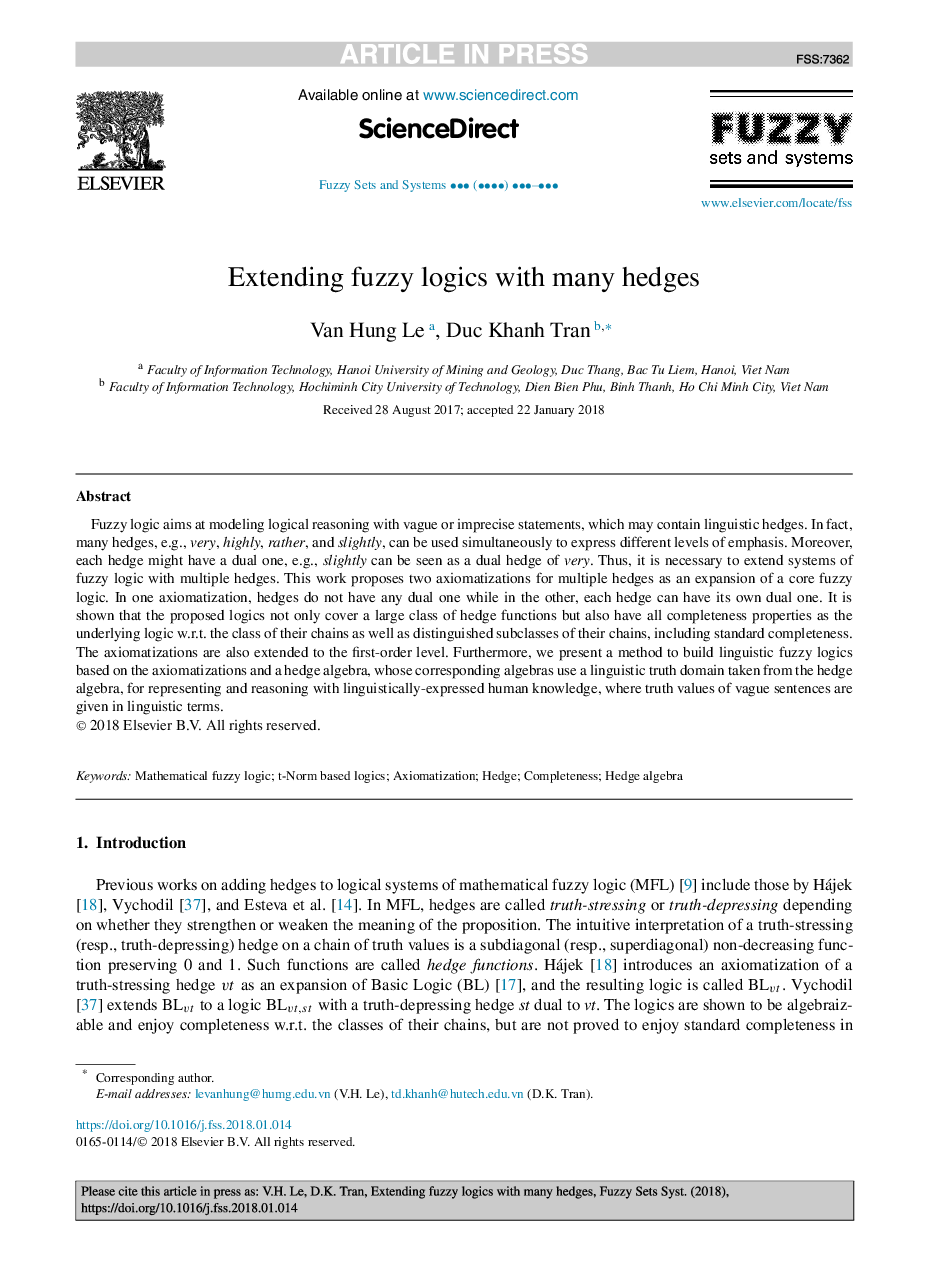| Article ID | Journal | Published Year | Pages | File Type |
|---|---|---|---|---|
| 6855829 | Fuzzy Sets and Systems | 2018 | 13 Pages |
Abstract
Fuzzy logic aims at modeling logical reasoning with vague or imprecise statements, which may contain linguistic hedges. In fact, many hedges, e.g., very, highly, rather, and slightly, can be used simultaneously to express different levels of emphasis. Moreover, each hedge might have a dual one, e.g., slightly can be seen as a dual hedge of very. Thus, it is necessary to extend systems of fuzzy logic with multiple hedges. This work proposes two axiomatizations for multiple hedges as an expansion of a core fuzzy logic. In one axiomatization, hedges do not have any dual one while in the other, each hedge can have its own dual one. It is shown that the proposed logics not only cover a large class of hedge functions but also have all completeness properties as the underlying logic w.r.t. the class of their chains as well as distinguished subclasses of their chains, including standard completeness. The axiomatizations are also extended to the first-order level. Furthermore, we present a method to build linguistic fuzzy logics based on the axiomatizations and a hedge algebra, whose corresponding algebras use a linguistic truth domain taken from the hedge algebra, for representing and reasoning with linguistically-expressed human knowledge, where truth values of vague sentences are given in linguistic terms.
Related Topics
Physical Sciences and Engineering
Computer Science
Artificial Intelligence
Authors
Van Hung Le, Duc Khanh Tran,
